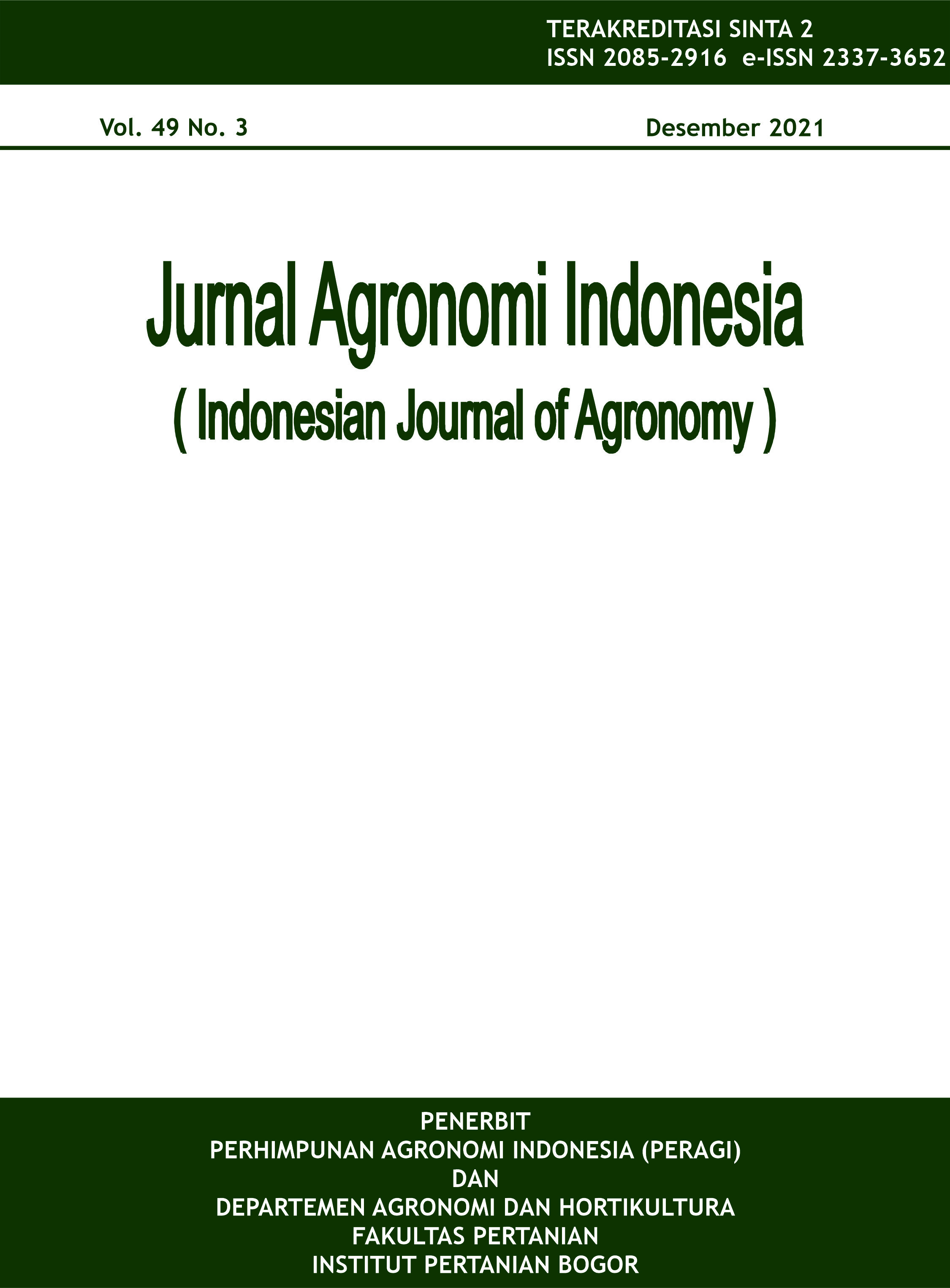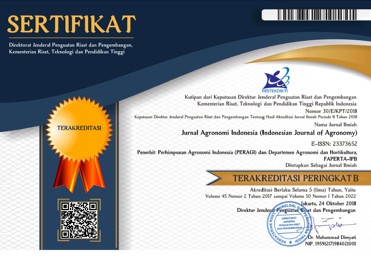Respon Galur-galur Harapan Padi Sawah Dihaploid terhadap Salinitas pada Fase Bibit
DOI:
https://doi.org/10.24831/jai.v49i3.37241Abstract
Due to climate change, Indonesian rice breeders have recently experienced salt issues. Salinity has been reported in many studies to cause plant growth reduction and severe yield loss in rice. This research aimed at evaluating salinity tolerance of doubled-haploid (DH) lines derived from anther culture at the seedling stage. The research was conducted at ICABIOGRAD’s greenhouse using a split-plot randomized complete block design. The main plot was NaCl concentration (0 mM and 120 mM) and the subplot was rice genotypes consisting of 14 doubled-haploid (DH) lines, four new released varieties (NRV), one tolerant check (Pokkali), and one sensitive check (Inpara 4). Seedlings of each rice genotype were grown hydroponically supplemented with different levels of NaCl. Plant growth and visual injury according to Standard Evaluation System for Rice from IRRI were assessed 14 days after NaCl addition. The results showed that 120 mM NaCl reduced shoot height, root length, leaf number, tiller number, shoot and root fresh weight, shoot and root dry weight, total fresh and dry weight biomass. The evaluation based on the seedling’s visual injury concluded that 11 DH lines and 2 NRV were tolerant, and 3 DH lines and 2 NRV were moderately tolerant.
Keywords: anther culture, evaluation, hydroponically, tolerance













